Transforming inventions into products: Duke charts a path for student innovators
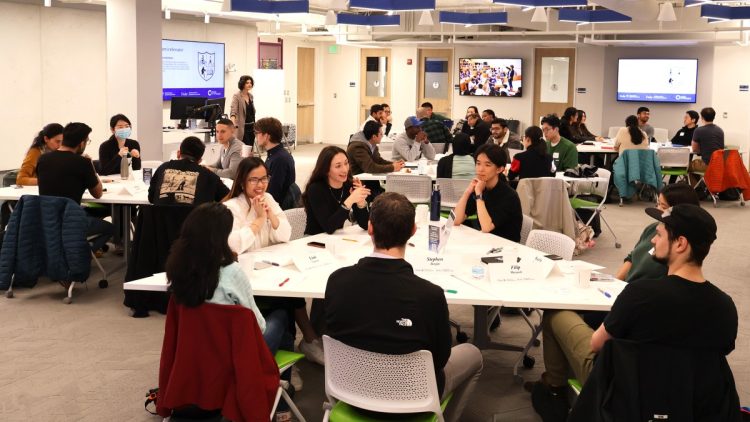
“I wonder whether the conditions inside the body would affect the functionality?”
“They certainly might.”
Hansel Alex Hobbie, an ECE PhD candidate in the lab of Professor Aaron Franklin, was discussing the intricacies of his medical device invention with a group of graduate and professional students.
The technology: a way to incorporate 3D-printed electronics onto the surface of a catheter, which Hobbie has been developing in the lab with the initial thought to use the electronics as sensors for tracking medical procedures delivered via the catheter without having to remove it.
Having tinkered with the device in the lab for months, Hobbie was at ease parsing the technical considerations of the technology. But questions about the technology’s commercial potential were more challenging for him: Who exactly was the end user? Who would buy the product?
To answer these questions was the goal of thirty graduate and professional students from across Duke – PhD students, postdocs, medical residents, MBA students, and more – who assembled to gain entrepreneurial skills by pushing innovative technologies developed in Duke labs further down the commercialization pathway.
Broadening visions for inventions
Five teams, each working on behalf of a technology one of its team members invented at Duke, were preparing to cold call potential customers and experts who would inform their strategies shaping lab inventions into commercializable products.
“I can’t teach you entrepreneurial hustle. That comes from your gut,” said Jamie Jones, Director of Duke Innovation & Entrepreneurship (Duke I&E), in her opening remarks. “But what we can teach you are the processes and systems to start to de-risk your entrepreneurial idea so that you increase the odds of being successful.”
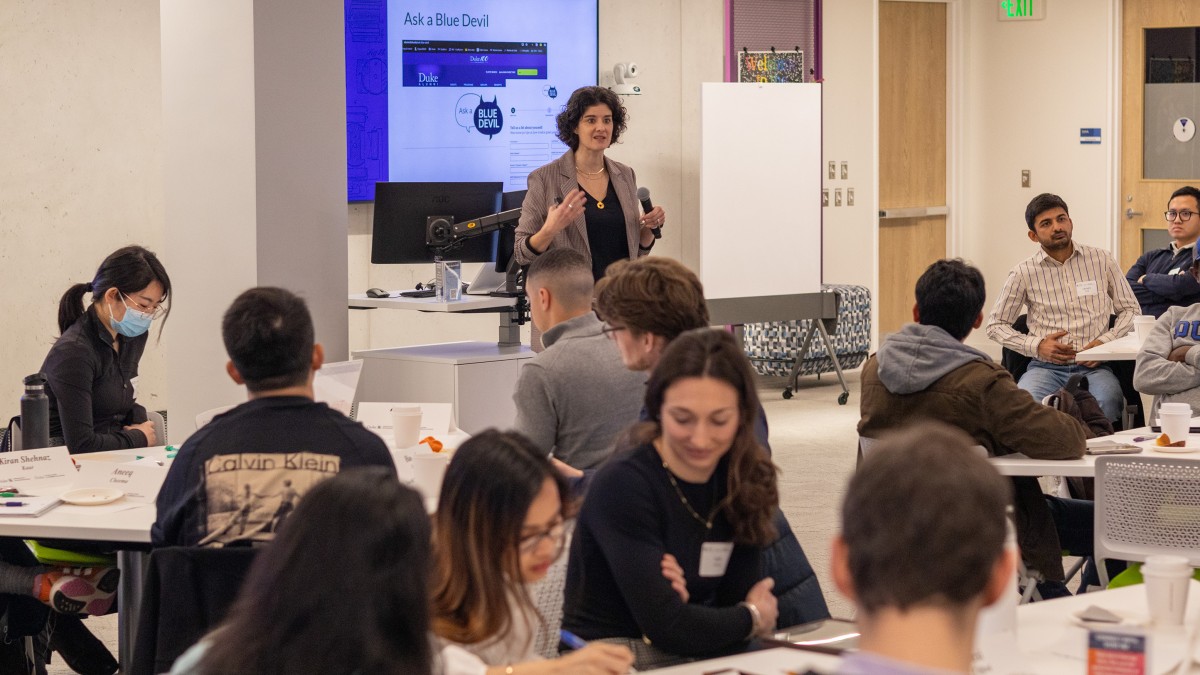
The two-day technology commercialization bootcamp was co-organized by Duke I&E, the Christensen Family Center for Innovation (CFCI), and the Duke University Office for Translation & Commercialization (OTC), with the goal of providing entrepreneurial graduate and professional students a hands-on learning opportunity to help market a real technology being developed at Duke.
“Between balancing coursework and research projects, many graduate and professional students might not be able to find the time to leverage all of the existing entrepreneurship programs at Duke, like the Duke I&E certificate program for graduate students,” said Nadine Wong, Managing Director of Licensing and Strategic Initiatives at OTC. “Our goal was to broaden participation by offering a compressed introduction to technology commercialization, teaming up with peers from other disciplines and focusing on actual research projects that are actively being developed at Duke.”
“What we heard from the students is they want opportunities to get quick bursts of learning in a compressed fashion that works for their schedules,” said Jones. “This is our attempt to meet them where they are.”
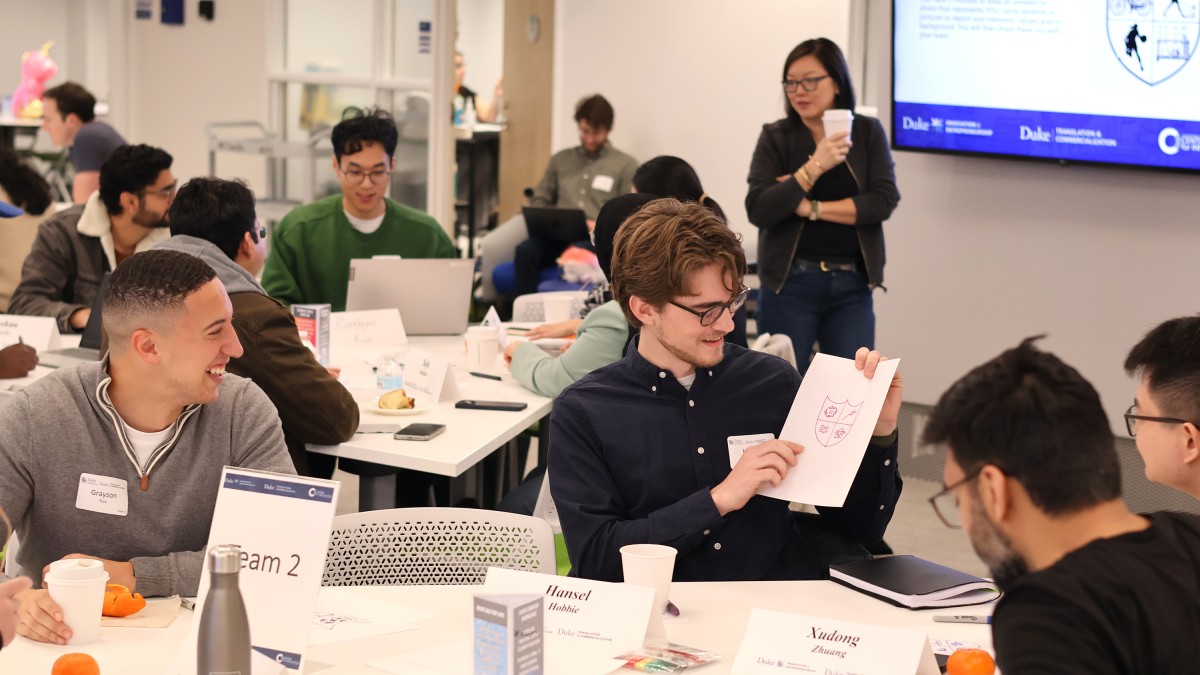
Talking the technology through with a team of other students from across Duke and then tackling the customer discovery process together was enlightening, Hobbie said.
“Working as a team in that environment, rather than just trying to think through all this myself, it really brought a lot of realness to the bootcamp,” said Hobbie, who is also an OTC Senior Fellow.
Shamitha Shetty, a BME Ph.D. student in the lab of Professor Joel Collier and a Duke Capital Partners Associate, jumped on another student-led project called LOVAMAP. This computational tool was developed by postdoctoral fellow Lindsay Riley while she was a BME PhD student in the lab of Professor Tatiana Segura to help analyze the geometric packing of the lab’s new biomaterial comprising tiny balls of hydrogel.
Coming in to work on a technology with such a niche initial application, Shetty said that her group didn’t know at the start of the project who the end user of the technology would be. The bootcamp was a huge help, though, and “After the brainstorming, everyone had a thousand different ideas of how this could be applied,” she said.
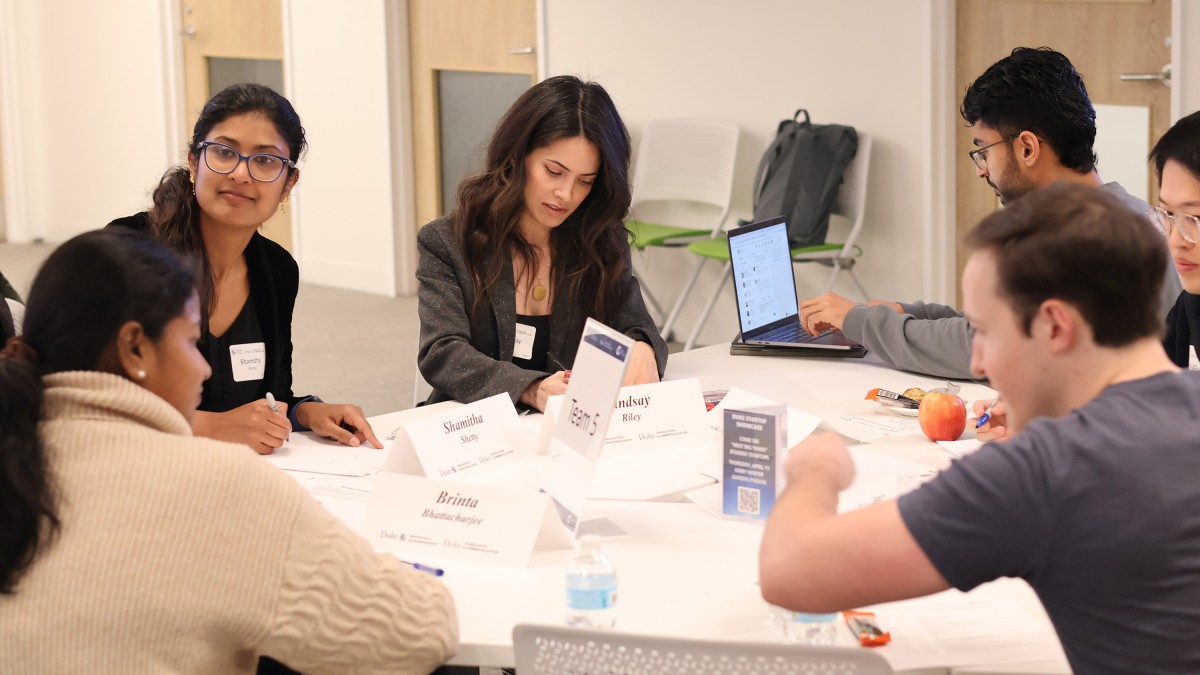
A hands-on, real-time experience
Working with real technologies and actually picking up the phone to cold call was a critical aspect of the hands-on learning experience.
“I’ve never done anything like that,” said Shetty. “I thought: ‘Why would this person want to help me?’ But they were all very eager. Now, I feel like I could reach out to other people, especially because I’m thinking of commercializing my own research.”
“Going through this process was really critical for me to actually identify the true customer base and end users for the technology that I developed,” said Hobbie.
In addition to teaching customer discovery, the bootcamp featured engaging presentations from entrepreneurial Duke science alumni.
“If I’m pitching to investors, I often talk about the value to patients. They are the customers, right? They’re the ones that are ultimately using this at the end,” said Deborah Bitterfield PhD ’11, a graduate of the Materials Science doctoral program, sharing her perspective as an entrepreneur while explaining decision making units.
Bitterfield is the founder & CEO of Lindy Biosciences, a drug delivery startup she spun out of the lab of her PhD advisor, Professor David Needham.
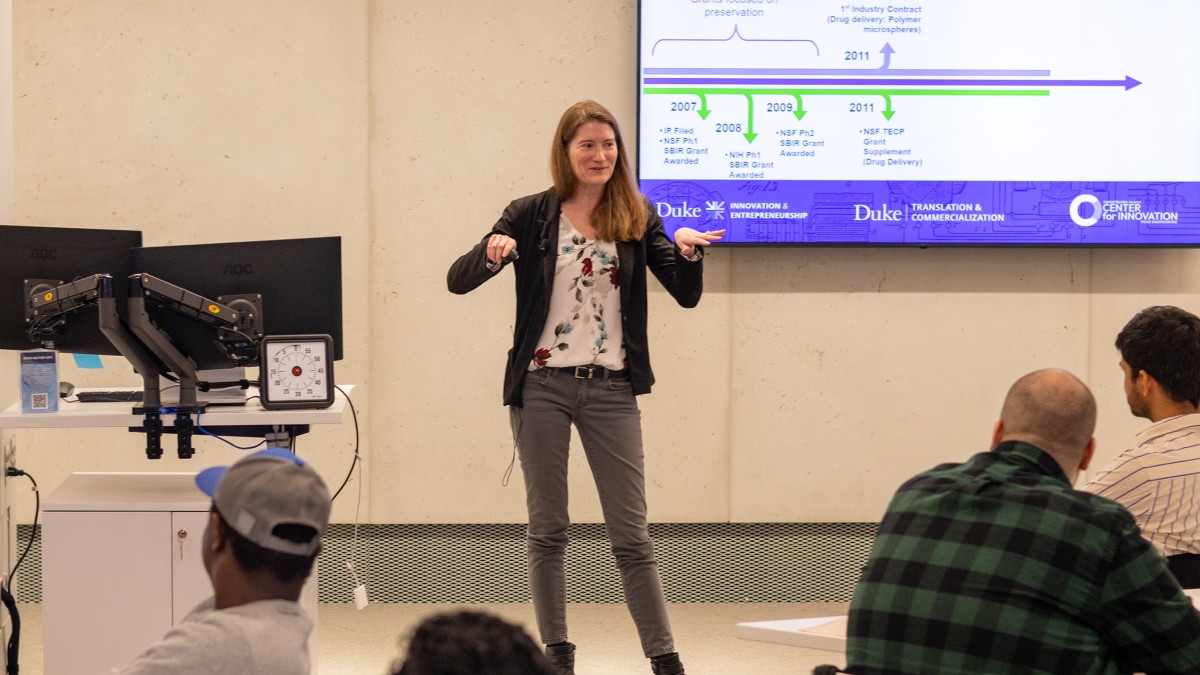
“Had something like this been available while I was a graduate student, that would have fast-tracked where the company is by at least a few years,” said Bitterfield after her presentation block, watching the teams prep for customer calls. “I’m very jealous of these students.”
Iterating into the future
“Asking those questions, finding those answers, figuring out what that next step is – it’s something that’s going to benefit these students for decades,” said Claire Aldridge PhD ’96 from Duke Immunology and Genetics and CSO at Form Bio, who helped conceive of the bootcamp and presented at the event.
“As engineers and scientists, we naturally gravitate toward technology to solve problems, but this is only the beginning,” said Joseph Knight PhD, MBA ’11 who is an Executive-in-Residence at the Biomedical Engineering Department of Pratt’s School of Engineering and was also a speaker at the event. “It was wonderful to see the ‘Ah ha!’ moments of students participating in the commercialization bootcamp, as they realized there is so much more required for a novel solution to get to market and asking the right questions to navigate the process.”
The organizing team hopes this experience proves to be an activation point for further work.
“Could they – the scientists, the engineers, the business-minded folks – continue to partner long after today? That would be a huge win for us. We’ll have to wait and see,” said Jones.
“Entrepreneurial skills that I gained from this bootcamp I absolutely will be applying in the coming months as I try to figure out setting up my own startup,” said Hobbie.
“Maybe I come back when they have this bootcamp again,” said Shetty. “Maybe I bring my own project next time.”
If you’re a graduate or professional student interested in an upcoming technology commercialization bootcamp, please fill out this form to stay on our list.